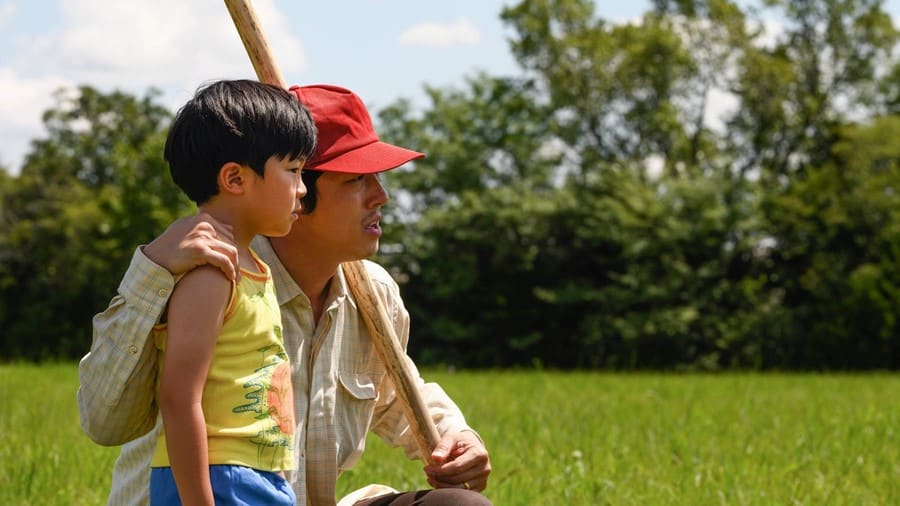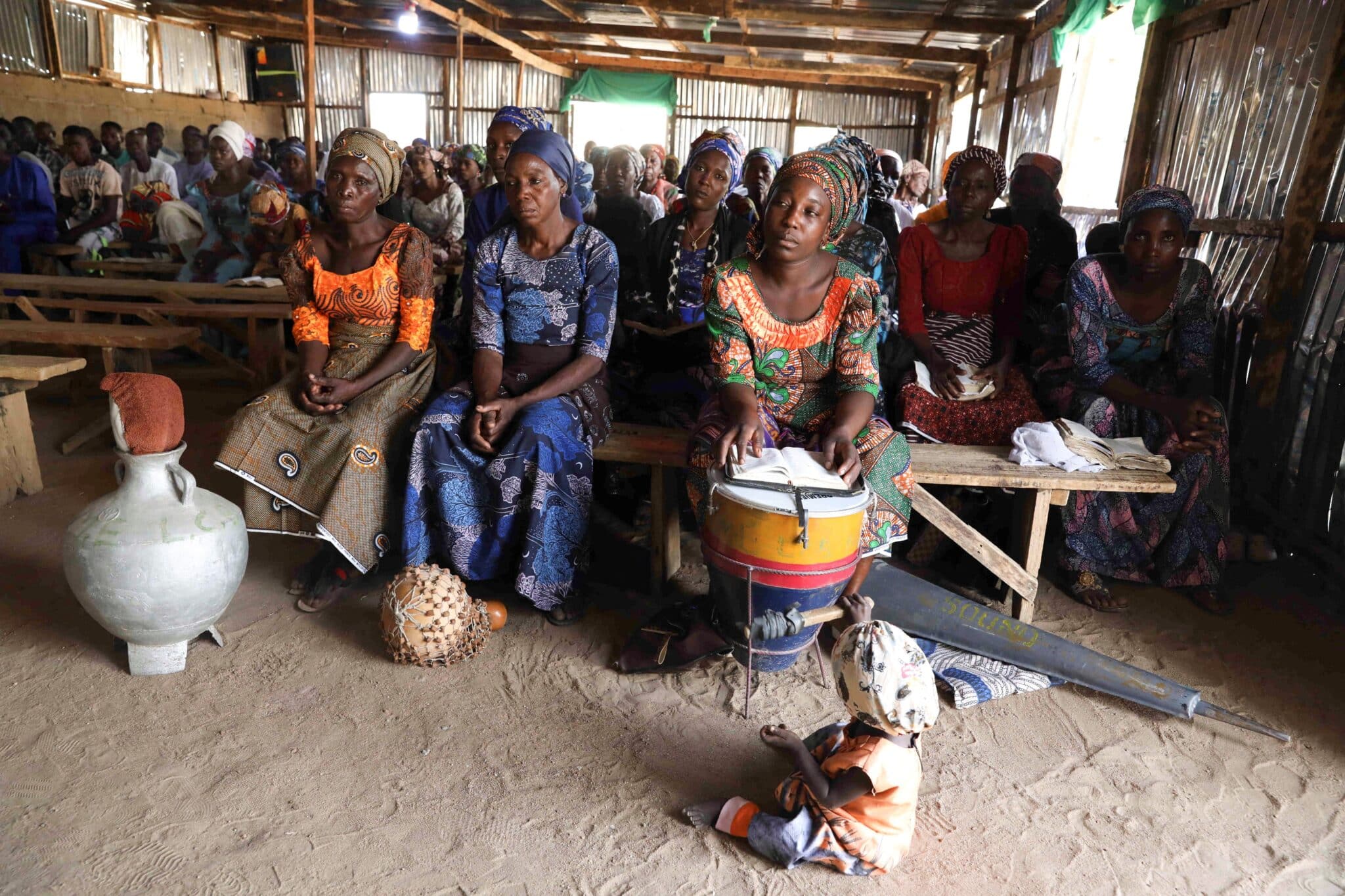Ma Rainey’s Black Bottom
It’s a hot summer day in Chicago, 1927. Black band members gather at a recording studio to await their lead performer, “Mother of the Blues” Ma Rainey (Viola Davis). They are planning to record several songs in one session, and Ma’s manager, Irvin (Jeremy Shamos), becomes increasingly nervous when his artist fails to show. Sturdyvant (Jonny Coyne) is the demanding and greedy owner of the studio who wants to squeeze as much from the popular singer as he can for as little money as possible.
The band members gather in an airless room to eat lunch and rehearse, but the older musicians seem annoyed by the young horn player, Levee (Chadwick Boseman), who writes his own music and restyles one of Ma’s songs from blues to jazz. As they wait around telling stories, tensions rise. When Ma and her girlfriend, Dussie Mae (Taylour Paige), and her nephew, Sylvester (Dusan Brown), arrive, the singer refuses to begin until Irvin provides her with a cold Coca-Cola and agrees to let Sylvester introduce the song on the record. Because Sylvester stutters, the whole production can only grind slowly ahead in the suffocating heat.
Ma Rainey’s Black Bottom’s adapted script, by Ruben Santiago-Hudson, is based on the Tony Award-winning 1982 play by August Wilson. It is part of The Pittsburgh Cycle, 10 plays by Wilson that explore the 20th-century African American experience—and the only one that features a real character (Gertrude “Ma” Rainey, 1886-1939).
The 2016 film version of Wilson’s Fences was like watching a play on the big screen, but Ma Rainey’s Black Bottom is a superbly produced film with incredible cinematography by Tobias A. Schleisser. Both films are produced by Denzel Washington. Davis’ performance is all-consuming and mesmerizing, as she stands her own with the white-run recording industry and belts out the blues (Davis actually provides the vocals for “Those Dogs of Mine” about her sore feet).
Chadwick Boseman, in his last film role, is a hopeful, charismatic, and tragic figure. His performance soars. The soul-searing soundtrack is produced and curated by Branford Marsalis, who adapts some of Ma Rainey’s original songs. Racial tensions, power struggles and injustices, creative differences, and the very souls of these artists are at the heart of this film, which is the best of 2020.
Not yet rated, R, Language, suggested lesbian relationship, violence.

Pieces of a Woman
Martha (Vanessa Kirby) is a Boston executive married to construction worker Sean (Shia LaBeouf). They are expecting their first child, a girl, and Martha chooses a home birth, though her mother, Elizabeth (Ellen Burstyn), disapproves. They go to all the classes and prepare for every eventuality, but when Martha goes into labor, her midwife cannot come. Instead, a new midwife, Eva (Molly Parker), assists. Martha’s labor is progressing well, but when the baby’s heart rate drops, Eva calls for an ambulance. Despite all efforts, the baby dies during birth.
In the year that follows, Martha and Sean must navigate their relationship, the role of Elizabeth in their lives, and the decision to prosecute Eva for malpractice. This is where director Kornél Mundruczó excels in vividly bringing Kata Wéber’s screenplay to life.
The images of water are a motif throughout the film, suggesting that water is the womb of life. The couple must sign papers for a new car and more papers for the home birth, giving the impression that life is all business. But they learn that the real business of life—living and loving—is fragile and requires the freedom of forgiveness to move ahead. The progress of the bridge that Sean is building marks the passage of time and the suggestion that healing after tragedy is possible.
Kirby’s performance is deeply felt and nuanced, while LaBeouf is believable as the father whose loss is just as devastating.
Not yet rated, R, Dramatic depiction of labor, graphic nudity.

Minari
A young Korean immigrant couple in the 1980s, Jacob (Steven Yeun) and Monica (Yeri Han), and their two children, Anne (Noel Cho) and David (Alan S. Kim), move from California to Arkansas after 10 years in the United States. Jacob believes that growing Korean vegetables will have a market as the Korean immigrant population increases. But he makes decisions without Monica’s input, and this causes a strain in their marriage.
During the day, Jacob and Monica work at a hatchling plant. They send for Monica’s mother, Soonja (Yuh-jung Youn), to look after the children. David, who has a heart murmur, thinks she isn’t a real grandma because she uses profanity and doesn’t bake cookies. At night, Jacob works the farm, which is doing well until the water dries up. A local man, Paul (Will Patton), is like a biblical prophet who performs exorcisms wherever there is a problem and helps Jacob whenever he can. When Soonja arrived from South Korea, she brought minari, a water plant similar to American watercress, and planted it near the creek. Just when the family seems to lose everything, her thoughtfulness brings them hope.
This is a film about seeking the American dream, yes, but it is even more about life, family, and faith. Minari, which is in Korean with English subtitles, is enjoyable and inspiring on every level.
Not yet rated, PG, Loss, death, grief.








